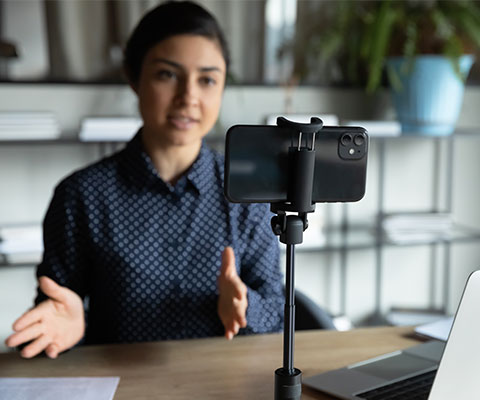
Virtually Speaking
Posted by James Hutton
The rapid speed with which we have all changed our working environments and practices in the medical educational space says a lot for the flexible working capabilities and digital solutions on offer in 2020. How different the global landscape might have been, even just 5 years ago, in such a challenging environment.
For live events and conferences, as you may be finding out, there are a plethora of companies – some old, some new and some adapted – offering a multitude of digital services to help you seamlessly transition your live event or congress into a convenient, cost-effective, interactive virtual experience. But what will be gained and lost?
Despite assurances that audiences are used to such interactions, delegates like to network and socialise in-person, so there is always going to be a layer of engagement that’s missing. Increased work pressures, during a global pandemic, also means it is harder for healthcare professionals (HCPs) to contribute to or attend educational sessions for the foreseeable future. The appetite, in general, for planning in-person participation in the Autumn conference season and beyond is not there yet, with too many unknowns about restrictions and time pressures. It may seem a pretty bleak outlook for live meeting attendances.
At Springer Healthcare IME, however, we have a head start in the virtual space. Our experience of hosting a range of meeting types in recent years – in order to suit varied educational specifications and audiences, and the requirement to meet different learning objectives – means that we know about the capabilities, diverse interaction techniques and formats to engage remote, regional HCP audiences.
With a focus on user engagement and interactivity to ensure educational measures and objectives are met by participants in our programs, in a way that both satisfies the learner and provides robust data about learning improvement, we know that sometimes only a self-contained, shorter, on-demand digital module will do!
With a number of conferences still going ahead via virtual sessions led by remote experts, bespoke conference software is doing its best to keep up and engage users. Offering discussion forums and chat boxes in a live meeting offers something in the way of direct informal interaction. However, anybody that has engaged in such communications, involving a large volume of users at once, will know it can be a dizzying ordeal trying to keep up with the extent of comments and threads appearing in real time.
Event-specific Apps offer more organised features and a pre-planned forum for engagement, allowing flexibility to display event-specific information, programs, live streams with slides and video footage, polling questions, panel Q&A portals, surveys and then hosting additional resources after the event. A lot of work goes into their creation to make the user experience conveniently centralised for both the live and post-event content.
Whatever your preferred format in these virtual times, you should know that there are solutions for every type of interaction, so good luck and stay engaged, because medical education never stops.

